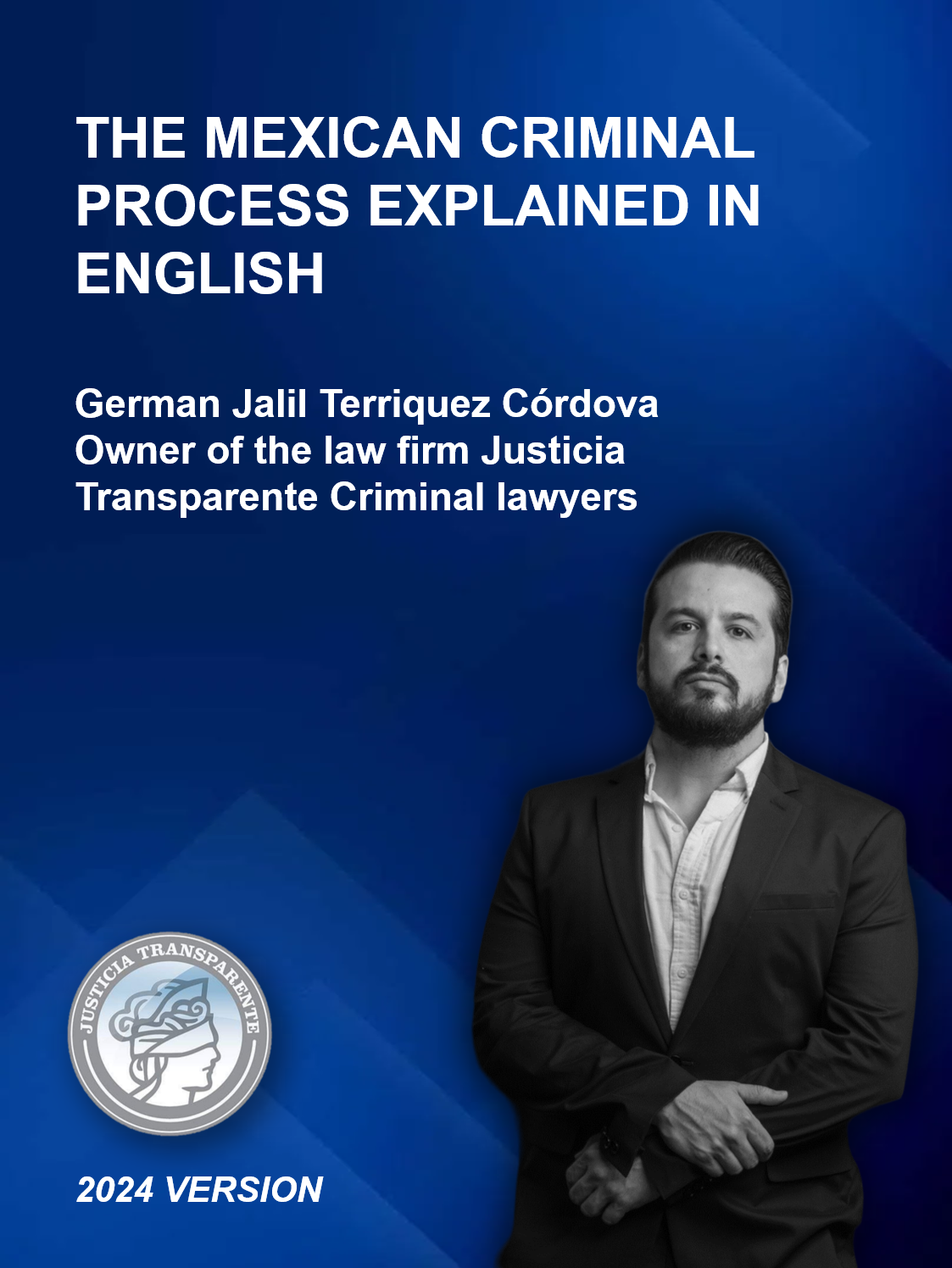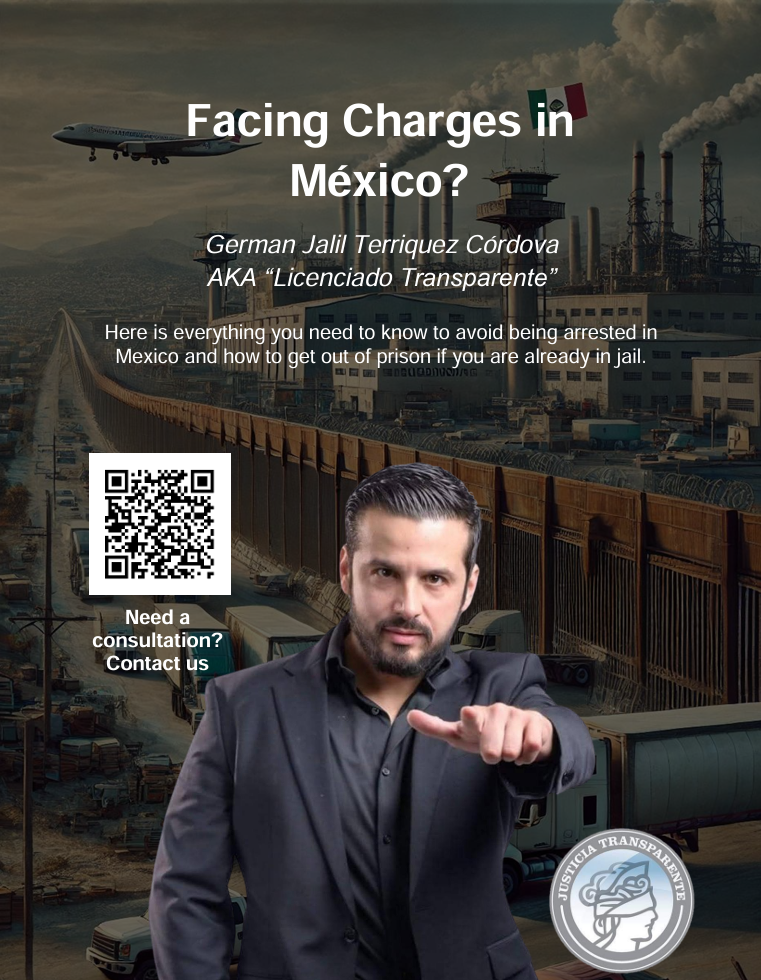
What Is an Arrest Warrant in Mexico?
Arrest warrant is a legal document issued by a judge that authorizes law enforcement to arrest a person suspected of having committed a crime. If you suspect (with probable cause) that there might be an arrest warrant issued against you, it’s completely understandable to feel worried, stressed, or uncertain. In such situations, ignoring the problem or avoiding legal responsibility is not advisable.
There are several ways to check whether there is an active arrest warrant in your name. Doing so gives you the opportunity to proactively address the issue and avoid being caught off guard.
Constitutional Requirements for Issuing an Arrest Warrant in Mexico:
“An arrest warrant may only be issued by a judicial authority and must be based on a complaint or criminal report regarding an act that the law classifies as a crime punishable by imprisonment. There must be evidence suggesting that the crime was committed and that the suspect likely committed it or took part in its commission.
The authority executing the warrant must immediately bring the accused before a judge, taking full responsibility for doing so without delay. Failure to comply will be penalized under criminal law.”
What Could Trigger an Arrest Warrant Against You?
- Leaving Mexico while under criminal investigation or with an active criminal proceeding (This is a common cause. The prosecutor may inform the judge that it’s not possible to summon the person to appear voluntarily because they’re no longer in the country).
- Failing to appear before a judge when required or ignoring legal notifications delivered directly to you.
- Being involved in another criminal case for a serious offense (in Mexico).
- The prosecutor proves to the judge that they cannot locate you and have no reliable information about your current address.
Risks of Having an Active Arrest Warrant
- Ignoring an arrest warrant can lead to serious consequences:
- Immigration Problems: An active arrest warrant can seriously affect visa applications, residency, and other immigration processes. It can also result in detention in a foreign country (extradition) or even deportation. (U.S. authorities often have access to Mexico’s arrest warrant data.)
- Employment Barriers: Many employers conduct background checks as part of their hiring process. A warrant can raise serious red flags.
- Arrest and Legal Consequences: Ignoring a warrant increases the chances of being arrested at any time—during a routine traffic stop or any contact with authorities.
How to Check if You Have an Arrest Warrant
The most secure and effective way is to file an “amparo” (constitutional protection claim) before a human rights judge in Mexico. This legal tool allows your attorney to request information from the courts and determine:
- Whether there is an active arrest warrant
- What charges you may be facing
- Additional important information about your legal status
The judge typically takes about five business days to provide a formal response. You don’t need to be physically present in the region where the warrant may exist—your attorney can file and manage the amparo on your behalf as long as you legally authorize them.
Accused a relative of a crime in Mexico? Do you need to know if it is a crime to bring weapons into Mexico? Do you need to know if it is a crime to bring marijuana into Mexico? The prosecutor is accusing me of having committed a crime that I did not commit? Has your loved one been in jail in Mexico for years?
If you are in one of these situations, hire an online consultation.
Do you want to avoid an arrest warrant against you in Mexico?
What to Do if You Have an Arrest Warrant
- An arrest warrant won’t go away on its own, and it should never be ignored. If you confirm there is a warrant against you, it’s critical to act quickly and wisely.
- Hire Legal Representation: The most important step is hiring an experienced criminal defense attorney. They will guide you through the legal process, explain your rights, review the charges, and create a strategy based on your unique situation.
- Develop a Legal Strategy: Your lawyer will work with you to create a plan to address the arrest warrant effectively. This might include arranging a voluntary surrender, negotiating with the prosecutor, and preparing your legal defense.
- Voluntary Surrender: With your attorney’s support, you can arrange to turn yourself in. Doing this shows your willingness to cooperate with authorities and may lead to more favorable treatment by the judge.
(Note: This strategy is generally only advisable for non-serious offenses and should always be reviewed in detail with your lawyer.) - Preparing for the Hearing: Once you surrender, you’ll likely appear before a judge. Your attorney will prepare you for the hearing, explain the procedures, and represent you in court—always aiming to achieve the best possible outcome and avoid pretrial detention.
Ignoring a warrant can lead to being arrested unexpectedly, facing additional charges, and turning a manageable legal issue into a much bigger problem. Acting responsibly and with the help of a criminal defense attorney can make a major difference in your case.
Our Recommendation
Hiring a criminal defense lawyer is the safest and most effective way to check for a judicial arrest warrant. A lawyer can discreetly investigate your legal situation without putting you at immediate risk of arrest. If there is a warrant, your attorney can negotiate your surrender to avoid jail time and may arrange a voluntary court appearance to prevent a formal arrest. They can also begin preparing your defense and negotiating with the prosecution to resolve the case.
Visit our online store
One of our products can help you
At Justicia Transparente, we are fully prepared to help clients handle these legal issues in the best way possible. Contact us so we can learn about your specific case and provide support tailored to your situation.
The Mexican criminal process explained in English

Facing Charges in México?.



